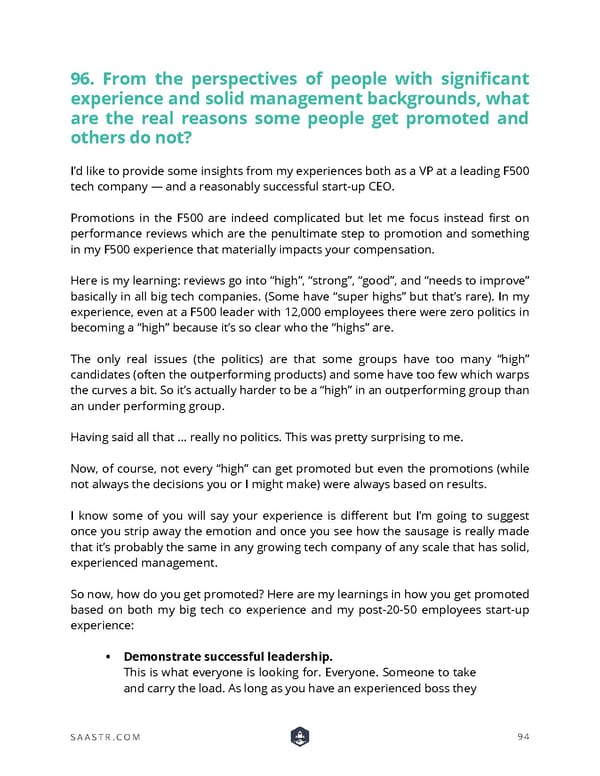96. From the perspectives of people with significant experience and solid management backgrounds, what are the real reasons some people get promoted and others do not? I’d like to provide some insights from my experiences both as a VP at a leading F500 tech company — and a reasonably successful start-up CEO. Promotions in the F500 are indeed complicated but let me focus instead first on performance reviews which are the penultimate step to promotion and something in my F500 experience that materially impacts your compensation. Here is my learning: reviews go into “high”, “strong”, “good”, and “needs to improve” basically in all big tech companies. (Some have “super highs” but that’s rare). In my experience, even at a F500 leader with 12,000 employees there were zero politics in becoming a “high” because it’s so clear who the “highs” are. The only real issues (the politics) are that some groups have too many “high” candidates (often the outperforming products) and some have too few which warps the curves a bit. So it’s actually harder to be a “high” in an outperforming group than an under performing group. Having said all that ... really no politics. This was pretty surprising to me. Now, of course, not every “high” can get promoted but even the promotions (while not always the decisions you or I might make) were always based on results. I know some of you will say your experience is different but I’m going to suggest once you strip away the emotion and once you see how the sausage is really made that it’s probably the same in any growing tech company of any scale that has solid, experienced management. So now, how do you get promoted? Here are my learnings in how you get promoted based on both my big tech co experience and my post-20-50 employees start-up experience: • Demonstrate successful leadership. This is what everyone is looking for. Everyone. Someone to take and carry the load. As long as you have an experienced boss they SAASTR.COM 94
 The Ultimate Guide For Scaling Sales & Raising Capital Page 97 Page 99
The Ultimate Guide For Scaling Sales & Raising Capital Page 97 Page 99